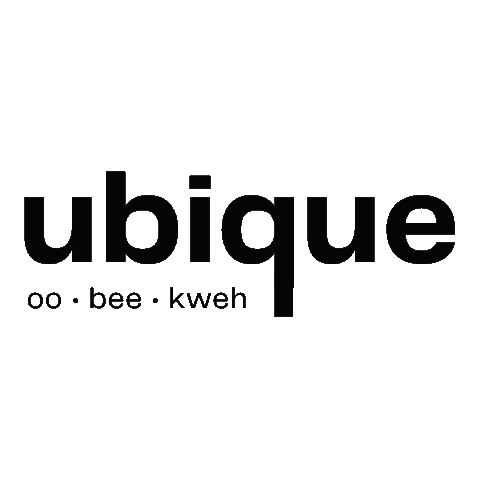How To: MBTI
Written by Mily Gu
How to:
MBTI
Have you ever heard the question “what’s your MBTI?” and heard responses like ‘INFJ’ and ‘ESTP’ and wondered what language they were speaking? Good news, it’s English.
MBTI stands for Myers-Briggers Type Indicator, a self-report inventory. It is one of the most widely used psychological instruments in the world. Developed by Isabel Myers and her mother Katherine Briggs, the MBTI is a questionnaire that identifies a person’s personality type, strengths, weaknesses and preferences.
Development of MBTI
Mother and daughter, Myers and Briggs based their work on Carl Jung’s theory of personality types. Which were:
Extraversion vs introversion
Sensation vs intuition
Thinking vs feeling
Judging vs perceiving
The MBTI test attempts to assign a person into these four categories. Myers and Briggers realized that his theory could be applied to real-life.
“By helping people understand themselves, Myers and Briggs believed that they could help people select occupations that were best suited to their personality types and lead healthier, happier lives.” Kendra Cherry
In the 1940s, Myers created the first hardcopy of the inventory, and both Myers and Briggs began trialing the assessment on close friends and family. For the next two decades, the two women continued to develop and refine the instrument.
The Test Itself
Although referred to as a ‘test,’ the MBTI test does not have any right or wrong answers. It simply consists of a variety of statements, in which participants are asked to choose from a scale how much they agree or disagree with them. Based on your answers, the inventory will assign you with one of 16 personality types.
It is important to know that none of the personalities are ‘better’ or ‘worse’ than others, they are simply to assign you to a personality so you can further explore your personality type and learn more about yourself.
Your Results
Upon receiving your results, you will see a 4 letter ‘code’ representing your personality. This is created based on your answers and it determines which aspect of your personality you lean more towards. Here’s a brief explanation of the different aspects that make up your personality.
MIND: how we interact with our surroundings.
Extraverted (E): “Extraverted individuals prefer group activities and get energized by social interaction. They tend to be more enthusiastic and more easily excited than Introverts.”
Introverted (I): “Introverted individuals prefer solitary activities and get exhausted by social interaction. They tend to be quite sensitive to external stimulation (e.g. sound, sight or smell) in general.”
Energy: how we see the world and process information
Sensing (S): “Observant individuals are highly practical, pragmatic and down-to-earth. They tend to have strong habits and focus on what is happening or has already happened.”
Intuition (N): “Intuitive individuals are very imaginative, open-minded and curious. They prefer novelty over stability and focus on hidden meanings and future possibilities.”
Nature: how we make decisions and cope with emotions
Thinking (T): “Thinking individuals focus on objectivity and rationality, prioritizing logic over emotions. They tend to hide their feelings and see efficiency as more important than cooperation.”
Feeling (F): “Feeling individuals are sensitive and emotionally expressive. They are more empathic and less competitive than Thinking types, and focus on social harmony and cooperation.”
Tactics: our approach to work, planning and decision-making
Judging (J): “Judging individuals are decisive, thorough and highly organized. They value clarity, predictability and closure, preferring structure and planning to spontaneity.”
Perceiving (P): “Prospecting individuals are very good at improvising and spotting opportunities. They tend to be flexible, relaxed nonconformists who prefer keeping their options open.”
You are never one or the other. For example, if your personality code begins with an E, it does not mean you are completely extraverted, you are just more extraverted than you are introverted, you can see this in your results where it shows you what percentage of each aspect you are.
So… what’s my personality?
One of the most popular sites to figure out your MBTI is 16Personalities, which you can access here
Not only does it give you your personality type after you take the test, it also has so many interesting articles about your personality. You might think ‘wow they understand me so well!’ after reading them.
Go ahead and find out your MBTI! Next time someone asks you what your MBTI is, you’ll know what language they’re speaking in.
Comment down your MBTI below :D (I’m an ISFJ)
Bibliography
Cherry. K. (2011, June 20). An Overview of the Myers-Briggs Type Indicator. Verywell Mind; Verywellmind. https://www.verywellmind.com/the-myers-briggs-type-indicator-2795583
NERIS Analytics Limited. (2013, October 17). Our Framework. 16personalities.Com; NERIS Analytics Limited. https://www.16personalities.com/articles/our-theory
Cherry. K.. (2019). Learning Styles Based on Jung’s Theory of Personality. Verywell Mind. https://www.verywellmind.com/jungs-theory-of-personality-learning-styles-2795160

